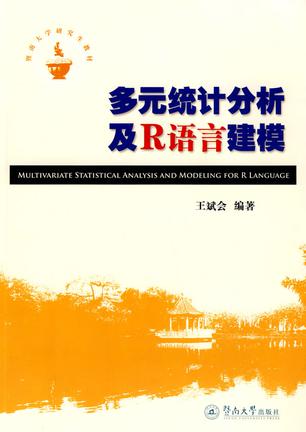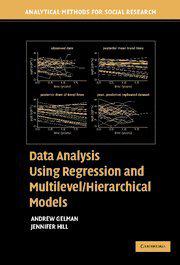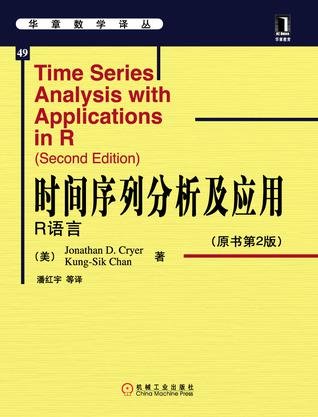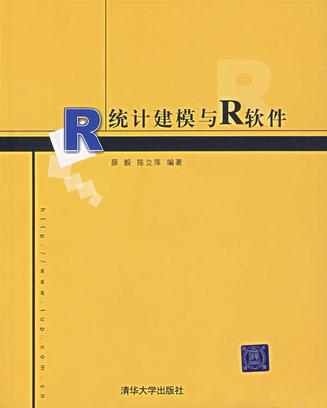-

Introducing Monte Carlo Methods with R (Use R)
Computational techniques based on simulation have now become an essential part of the statistician's toolbox. It is thus crucial to provide statisticians with a practical understanding of those methods, and there is no better way to develop intuition and skills for simulation than to use simulation to solve statistical problems. Introducing Monte Carlo Methods with R covers the main tools used in statistical simulation from a programmer's point of view, explaining the R implementation of each simulation technique and providing the output for better understanding and comparison. While this book constitutes a comprehensive treatment of simulation methods, the theoretical justification of those methods has been considerably reduced, compared with Robert and Casella (2004). Similarly, the more exploratory and less stable solutions are not covered here. This book does not require a preliminary exposure to the R programming language or to Monte Carlo methods, nor an advanced mathematical background. While many examples are set within a Bayesian framework, advanced expertise in Bayesian statistics is not required. The book covers basic random generation algorithms, Monte Carlo techniques for integration and optimization, convergence diagnoses, Markov chain Monte Carlo methods, including Metropolis {Hastings and Gibbs algorithms, and adaptive algorithms. All chapters include exercises and all R programs are available as an R package called mcsm. The book appeals to anyone with a practical interest in simulation methods but no previous exposure. It is meant to be useful for students and practitioners in areas such as statistics, signal processing, communications engineering, control theory, econometrics, finance and more. The programming parts are introduced progressively to be accessible to any reader. -

Introductory Statistics with R
This book provides an elementary-level introduction to R, targeting both non-statistician scientists in various fields and students of statistics. The main mode of presentation is via code examples with liberal commenting of the code and the output, from the computational as well as the statistical viewpoint. Brief sections introduce the statistical methods before they are used. A supplementary R package can be downloaded and contains the data sets. All examples are directly runnable and all graphics in the text are generated from the examples. The statistical methodology covered includes statistical standard distributions, one- and two-sample tests with continuous data, regression analysis, one-and two-way analysis of variance, regression analysis, analysis of tabular data, and sample size calculations. In addition, the last four chapters contain introductions to multiple linear regression analysis, linear models in general, logistic regression, and survival analysis. -

多元统计分析及R语言建模
《暨南大学研究生教材•多元统计分析及R语言建模》共分15章,主要内容有:多元数据的收集和整理、多元数据的直观显示、线性与非线性模型及广义线性模型、判别分析、聚类分析、主成分分析、因子分析、对应分析、典型相关分析等常见的主流方法。《暨南大学研究生教材•多元统计分析及R语言建模》还参考国内外大量文献,系统地介绍了这些年在经济管理等领域应用颇广的一些较新方法,可作为统计学专业本科生和研究生的多元分析课程教材。《暨南大学研究生教材•多元统计分析及R语言建模》还可作为非统计学专业研究生的量化分析教材。 -

Data Analysis Using Regression and Multilevel/Hierarchical Models
Data Analysis Using Regression and Multilevel/Hierarchical Models is a comprehensive manual for the applied researcher who wants to perform data analysis using linear and nonlinear regression and multilevel models. The book introduces a wide variety of models, whilst at the same time instructing the reader in how to fit these models using available software packages. The book illustrates the concepts by working through scores of real data examples that have arisen from the authors' own applied research, with programming codes provided for each one. Topics covered include causal inference, including regression, poststratification, matching, regression discontinuity, and instrumental variables, as well as multilevel logistic regression and missing-data imputation. Practical tips regarding building, fitting, and understanding are provided throughout. Author resource page: http://www.stat.columbia.edu/~gelman/arm/ -

时间序列分析及应用
本书以易于理解的方式讲述了时间序列模型及其应用,主要内容包括:趋势、平稳时间序列模型、非平稳时间序列模型、模型识别、参数估计、模型诊断、预测、季节模型、时间序列回归模型、异方差时间序列模型、谱分析入门、谱估计、门限模型.对所有的思想和方法,都用真实数据集和模拟数据集进行了说明. 本书可作为高等院校统计、经济、商科、工程及定量社会科学等专业学生的教材或教学参考书,同时也可供相关技术人员使用. -

统计建模与R软件
统计建模与R软件,ISBN:9787302143666,作者:薛毅